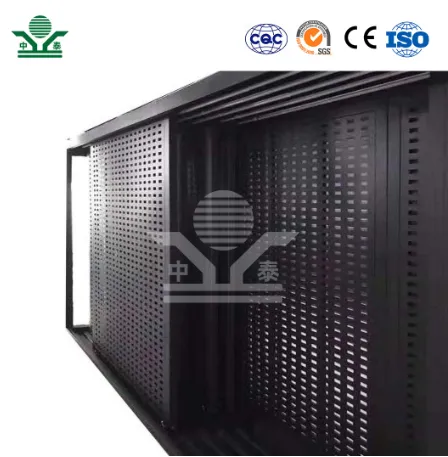The Versatility and Utility of Woven Wire Fences
Woven wire fences are a robust, practical, and aesthetically pleasing solution for a wide variety of fencing needs. Whether you are securing livestock, delineating property boundaries, or creating a decorative garden fence, woven wire offers durability and versatility that few other fencing materials can match.
Construction and Design
Woven wire fencing is typically made from high-tensile steel wire, which is woven together in an intricate pattern to create a strong, flexible barrier. The weaving process results in a fence that is not only sturdy but also able to withstand the pressure exerted by animals, wind, and other environmental factors. The design can vary in terms of the gauge of the wire and the spacing of the mesh, allowing for customization based on specific fencing needs. For instance, tighter mesh can keep smaller animals in or out, while larger openings may be suitable for general livestock.
Applications
One of the most common uses for woven wire fencing is in agricultural settings. Farmers and ranchers rely on this type of fence to secure their livestock, such as cattle, sheep, and horses. The strength of woven wire keeps animals contained while also preventing predators from gaining access. Furthermore, its resilience against wear and tear makes it a long-lasting choice, reducing the need for frequent repairs or replacements, which can be both time-consuming and costly.
In residential settings, woven wire fences can serve aesthetic and practical purposes. They are often used to create picturesque boundaries in gardens or around backyards. The visual appeal of a woven wire fence can enhance the overall look of a property, providing a rustic charm that blends well with natural surroundings. Homeowners can also plant climbing vines or other plants along the fence to create a more inviting atmosphere.
woven wire fence

Advantages Over Other Fence Types
When compared to traditional wooden or vinyl fences, woven wire fences have several advantages. First and foremost, their durability sets them apart. While wooden fences may rot or be susceptible to insect damage, and vinyl fences can fade or crack over time, woven wire fences maintain their structural integrity for decades with minimal maintenance. Additionally, woven wire is more environmentally friendly, as it can be recycled and doesn’t rely on chemical treatments that might leach into the soil.
Additionally, woven wire fences are often more economical in terms of both initial cost and maintenance. Although the upfront investment can vary based on the gauge and quality of the wire, the long-term savings associated with durability and minimal upkeep make it a cost-effective solution.
Considerations
When installing a woven wire fence, it’s important to consider local regulations regarding fence height, property lines, and materials. It is also essential to assess the specific needs of your application, including the type of animals to be contained or the aesthetic goals desired.
Conclusion
In conclusion, woven wire fences represent a practical and versatile fencing solution that meets a myriad of needs, from agricultural to residential applications. Their durability, low maintenance, and aesthetic appeal make them an attractive option for anyone in need of a reliable barrier. As the demand for effective and sustainable fencing solutions continues to grow, woven wire fences stand out as a timeless choice, combining functionality with elegance. Whether you’re a farmer looking to secure livestock or a homeowner desiring to enhance your property, woven wire fencing provides an ideal solution that withstands the test of time.
-
Why Galvanized Trench Cover Steel Grating Resists Corrosion
NewsJul.10,2025
-
The Versatility and Strength of Stainless Expanded Metal Mesh
NewsJul.10,2025
-
Load Calculations in Steel Grating Platforms
NewsJul.10,2025
-
Keeping Pets and Kids Safe with Chicken Wire Deck Railing
NewsJul.10,2025
-
Hole Diameter and Pitch for Round Perforated Metal Sheets
NewsJul.10,2025
-
Aluminium Diamond Mesh in Modern Architecture
NewsJul.10,2025
Subscribe now!
Stay up to date with the latest on Fry Steeland industry news.

